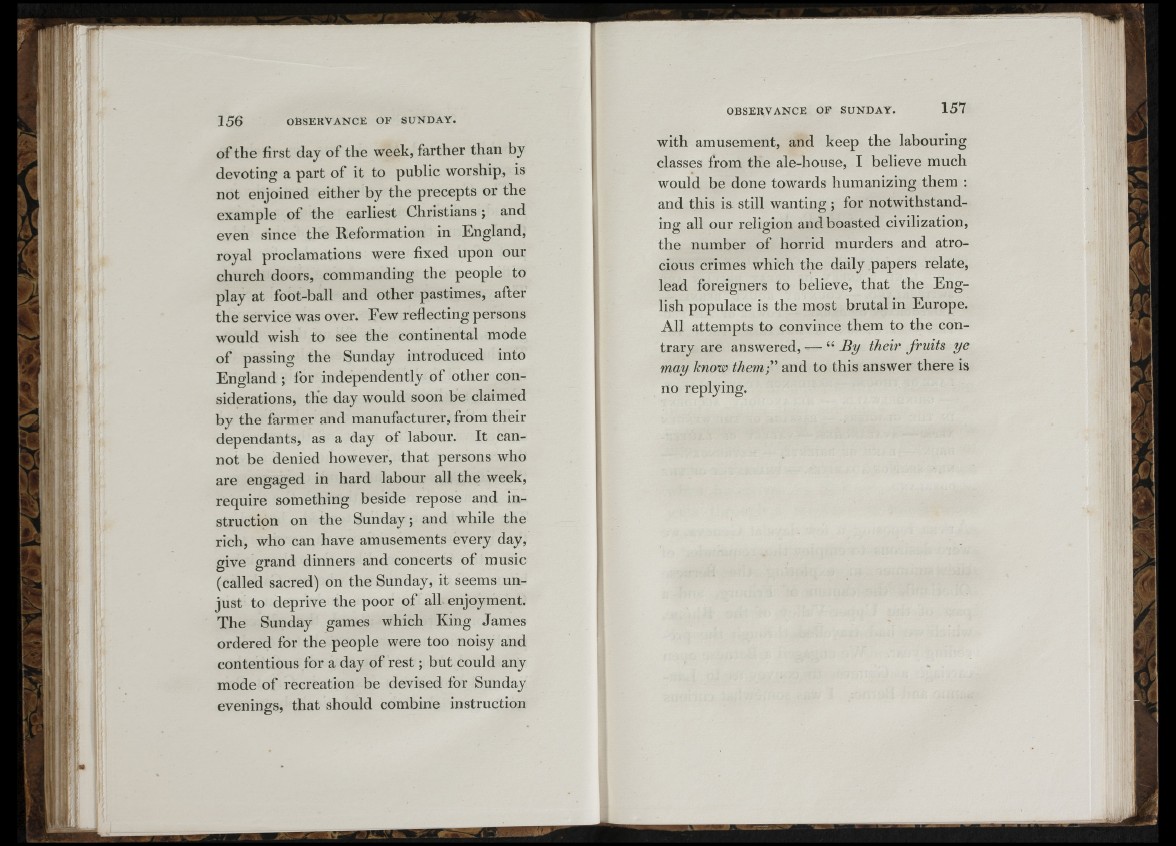
\%M:V
kirM' ir
Ii ®
I
of the first day of the week, farther than by
devoting a part of it to public worship, is
not enjoined either by the precepts or the
example of the earliest Christians ; and
even since the Reformation in England,
royal proclamations were fixed upon our
church doors, commanding the people to
play at foot-ball and other pastimes, after
the service was over. Few reflecting persons
would wish to see the continental mode
of passing the Sunday introduced into
England ; for independently of other considerations,
the day would soon be claimed
by the farmer and manufacturer, from their
dependants, as a day of labour. It cannot
be denied however, that persons who
are engaged in hard labour all the week,
require something beside repose and instruction
on the Sunday; and while the
rich, who can have amusements every day,
give grand dinners and concerts of music
(called sacred) on the Sunday, it seems unju
st to deprive the poor of a ll enjoyment.
The Sunday games which King James
ordered for the people were too noisy and
contentious for a day of r e s t; but could any
mode of recreation be devised for Sunday
evenings, that should combine instruction
with amusement, and keep the labouring
classes from the ale-house, I believe much
would be done towards humanizing them :
and this is- still wanting ; for notwithstanding
all our religion and boasted civilization,
the number of horrid murders and atrocious
crimes which the daily papers relate,
lead foreigners to believe, that the English
populace is the most brutal in Europe.
All attempts to convince them to the contrary
are answered, — “ B y their fruits ye
may know th em f and to this answer there is
no replying.
■TT"